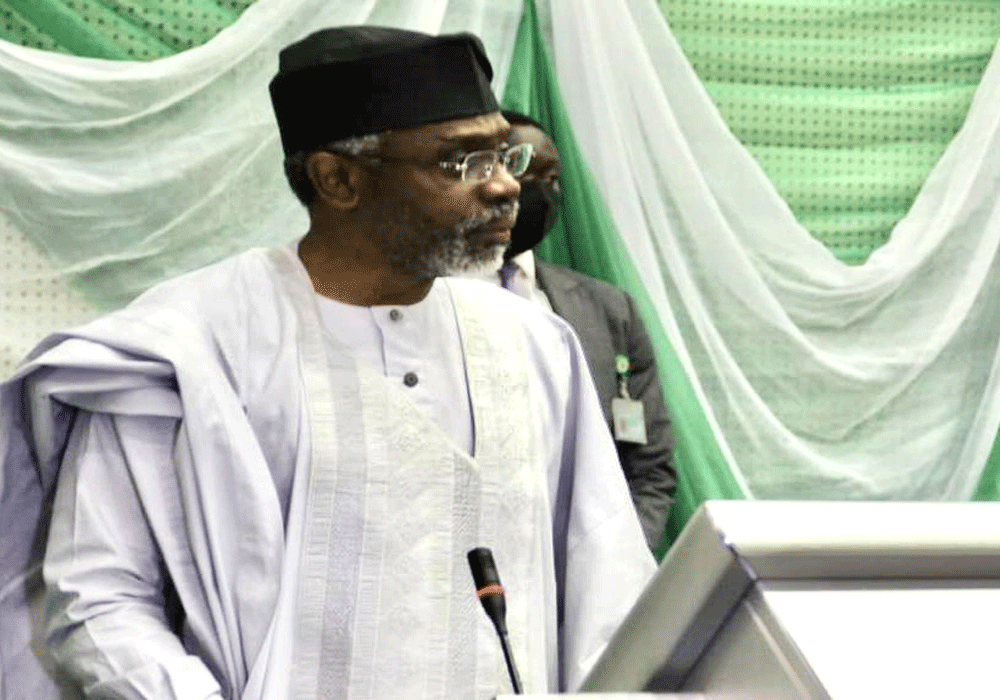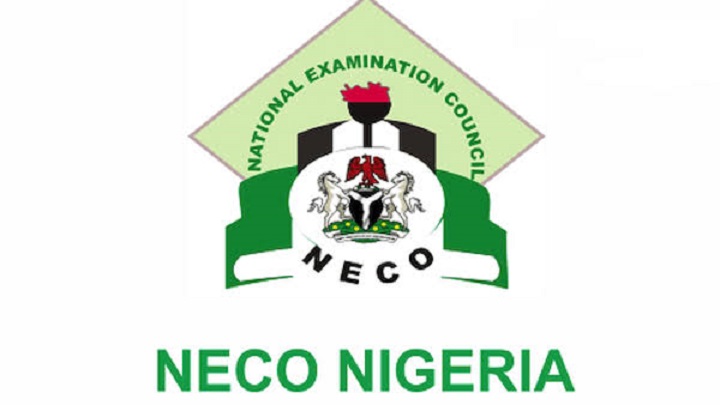NEWS
Reps wades into ASUU saga, summons labour minister, AGF, SGF, others

The Minister of Labour and Productivity, Secretary to the Government of the Federation, Head of Civil service of the Federation, Accountant General of the Federation, Director General, Salaries, income and Wages Commission, Director General Budget Office, among others have summoned to appear before the House Representatives next week Thursday.
The Speaker, Femi Gbajabiamila, gave the directive Thursday at the resumed fact finding meeting on strike embarked upon by the Academic Staff Union of Universities, ASUU.
In continuation of the efforts to find solutions to the lingering strike by the Academic Staff Union of Universities (ASUU), the Speaker of the House of Representatives alongside his deputy Rep. Ahmed Idris Wase and other leaders of the House on Thursday met with the Head of Service of the Federation (HoS), Mrs Folashade Yemi-Esan, the chairman of the National Salaries, Incomes and Wages Commission, Mr. Ekpo Nta, among other government officials.
Read also>>>ASUU Strike: Court Orders Varsity Lecturers Back to Classroom
The meeting was a follow up to an earlier one the Speaker held with ASUU officials on Tuesday, where issues related to the strike were discussed.
The outcome of Tuesday’s meeting led the House leadership to invite the Head of Service, the National Information Technology Development Agency (NITDA), Salaries, Incomes and Wages Commission, the Accountant General of the Federation, among others.
At Thursday’s meeting, NITDA told the House leadership that the Integrated Payroll Personnel Information System (IPPIS), the University Transparency Accountability Solution (UTAS) and the University Peculiar Personnel and Payroll System (U3PS) failed its integrity tests regarding the university payroll, which the agency conducted between March and JUNE this year.
A NITDA official at the meeting told the House leadership that the government directed the agency to test UTAS in October, 2020, and that the platform failed the two integrity tests conducted on it.
He said following the first test, ASUU was asked to go back and review, which it did. Yet, the platform did not meet NITDA’s requirements the second time.
For the third time, NITDA was then asked to conduct tests on UTAS, IPPIS and U3PS, which the official said all the three platforms failed its requirements regarding the payroll system of universities.
Not satisfied with the explanation, Speaker Gbajabiamila asked if NITDA advised the government to take action on the lapses found on IPPIS, which has been in operation by government since 2011. But the NITDA official said they were not in a position to do that.
Gbajabiamila also asked if NITDA queried IPPIS platform, to which the official responded in the negative.
The Deputy Speaker Wase also expressed reservations at NITDA’s action, saying it ought to have advised government on the appropriate action to take in view of its discovery on IPPIS.
However, the Head of Service, in her explanation, said the ministry of communications and digital economy wrote her office following NITDA’s observations about IPPIS on the need to take a holistic look at the platform and that a committee was empaneled to carry out the assignment.
She also noted that IPPIS is not just a payment platform but that it also has a human resource component, which all government agencies have been directed to activate, noting that all those directly under her purview have since complied.
Also, the chairman of the National Salaries, Incomes and Wages Commission, Mr Nta, told the House leadership that in view of the general agitation in the tertiary education sector, the agency advised the government to look at the possibility of increasing the salaries of the staff in the entire sector, comprising universities, polytechnics and colleges of education.
He said, however, that at the end of the day, the government decided to increase the salaries of lecturers in the universities by a certain percentage, while professors were considered for higher percentage.
He said he was not aware of any agreement between the Federal Government and ASUU for salary increment.
Also speaking at the meeting, the acting Accountant General of the Federation, Mr. Sylva Okolieaboh, said under no circumstance should employees dictate to their employers how they should be paid, faulting ASUU’s insistence on UTAS.
After hours of deliberations, the Speaker suggested that a further follow-up meeting with ASUU officials be held on Thursday next week, which the stakeholders subscribed to. The meeting was, therefore, adjourned to Thursday next week.
NEWS
Edo: Gov Okpebholo Launches Probe Into Obaseki Administration
Edo State Governor, Monday Okpebholo, has announced the establishment of a 14-member Assets Verification Committee to examine the financial records and asset management of the previous administration led by Godwin Obaseki.
In a statement released on Sunday by his Chief Press Secretary, Fred Itua, the governor revealed that the committee would be inaugurated on Tuesday, November 26, in Benin City.
RELATED NEWS: Gov Okpebhole Suspends Revenue Collection, Orders Arrest Of Violators
The panel is tasked with creating a detailed account of the state’s assets and liabilities to ensure transparency and accountability.
The committee will be chaired by Ernest Umakhihe, with Anslem Ojezua as Deputy Chairman and Frank Edebor as Secretary. Other members include Kassim Afegbua, Patrick Ikhariale, Taiwo Akerele, Patrick Idiake, Rasaq Bello-Osagie, Fredrick Unopah, Abdallah Eugenia, Patrick Obahiagbon, Kenny Okojie, Lyndsey Tes-Sorae, and Abass Braimoh.
Explaining the rationale behind the committee, Mr. Itua stated, “Despite repeated calls for a more holistic database of the assets and liabilities of the previous administration, the Godwin Obaseki-led government presented a scanty and limited report.”
He added that the initiative reflects the governor’s commitment to his campaign promises.
“In line with the governor’s campaign promise to ensure probity, accountability, and transparency in government, and to deepen the governance process, a committee made up of respected sons and daughters from Edo State has to be constituted,” the statement noted.
The committee’s work is expected to pave the way for a more accountable and developmental governance structure in Edo State.
NEWS
NECO Expands Global Footprints, Accredits Niger, Equatorial Guinea Schools

In a bid to increase its global presence, the National Examination Council (NECO) has accredited more foreign schools.
This was contained in a statement issued under the signature of its Acting Director of Public Relations, Azeez Sanni, on Saturday.
He revealed that the accredited schools are in Niger Republic and Equatorial Guinea.
Recall that last year, the examination body accredited some centres in Niger Republic to enable Nigerian students in the Francophone country to sit for the examinations.
ALSO READ: Davido Is Our Son, Our Pride – Gov Adeleke
The statement read, “Determined to broaden its horizon and expand its global presence, the National Examinations Council has accredited more foreign schools to write the Senior School Certificate Examination and the Basic Education Certificate Examination.
“The newly accredited schools, in addition to the existing ones, are in Niger Republic and Equatorial Guinea.
“NECO accreditation team visited the Schools to assess their readiness to write the SSCE and BECE.
“The accreditation 5eam inspected classrooms, laboratories, libraries, computer laboratories, workshops, examination halls and sports facilities to determine their adequacy and suitability for NECO examinations.
“After a thorough evaluation and comprehensive assessment, the schools were granted full SSCE and full BECE accreditation status.”
NEWS
Ex-UN Envoy Warns Of New Cold War Threatening Africa’s Unity
Renowned diplomat and former United Nations Under-Secretary-General, Ibrahim Gambari, has raised alarms over the looming threat of a new Cold War that could fracture Africa along geopolitical lines.
Speaking at the Realnews Magazine Annual Lecture in Lagos, Gambari urged African leaders to urgently reposition the continent amidst intensifying global power struggles.
The lecture, themed “Africa in World Shifting Geopolitics: Matters Arising on Demography, Technology, Artificial Intelligence, Natural Resources,” explored Africa’s strategic role in a rapidly evolving international system.
READ ALSO: I Make $40,000 Montly With Content Creation Says Blessing CEO
Gambari cautioned that without proactive measures, Africa risks being sidelined or exploited in the unfolding global order.
Africa: Battleground in a New Power Struggle
Describing the increasing militarisation by major global powers, Gambari painted a picture of fierce competition for control over Africa’s resources and strategic locations.
He noted that the proliferation of foreign military bases across the continent is evidence of this struggle.
“A relentless militarisation is taking place across the world—from the Atlantic to the Pacific, the Arctic to the Antarctic,” Gambari said. “Rich in natural resources and strategically located, Africa has become a key battleground in this global power struggle.”
He cited Djibouti as a stark example of Africa’s strategic importance.
The country, located near the Red Sea, hosts both the United States’ only permanent base on the continent, Camp Lemonnier, and China’s first overseas military installation.
Gambari warned that the presence of such bases represents more than security interests, suggesting echoes of colonial ambitions aimed at controlling Africa’s wealth and arable land.
“The seaboard of Africa is already dotted with military bases operated by various powers,” Gambari observed. “The continent is once again at the center of a scramble as the new Cold War intensifies.”
The Return of Zero-Sum Geopolitics
Gambari also highlighted the resurgence of zero-sum geopolitics, where nations compete for influence at the expense of others.
He noted that China and Russia are emerging as dominant players in Africa, with China leveraging infrastructure projects and debt relief, while Russia offers weapons and military support.
“These actions signal a destabilising competition for influence,” Gambari said, adding that traditional powers like France, Germany, India, and the UK are also expanding their presence on the continent.
“The age of zero-sum geopolitics is back, with all its destabilising consequences for African countries,” he said.
Unlocking Africa’s Potential Amid Challenges
Despite the geopolitical rivalry, Gambari emphasized that Africa’s youthful and growing population provides a significant opportunity for the continent to assert its influence globally.
He urged African leaders to invest in education, innovation, and youth-driven initiatives to harness this demographic dividend.
“With well over a billion people and an overwhelmingly youthful population, the African continent is destined for a significant role in the demographics of the world,” Gambari said.
“But we must build national and regional strategies to leverage the energy, innovative acumen, and futuristic vision of our young people.”
Gambari warned that without these strategies, Africa’s demographic advantage could remain underutilised.
He also called for the continent to be proactive in shaping the rules of the emerging global order, rather than being passive participants.
“We cannot afford to sit on the sidelines while the rules of a new world order are being written,” Gambari said.
“We must insist on being joint rule-makers, ensuring the new global order reflects our values and aspirations for a fairer, more inclusive, and equitable world.”
A Call to Action
Gambari concluded with a rallying cry for African leaders to harness the continent’s abundant resources and human capital.
He said Africa must use its demographic and strategic advantages to achieve the structural transformation that has long eluded it.
He said, “We must be ready to harness our abundant human and natural resources to leapfrog our development. Although the outcomes of ongoing geopolitical shifts are uncertain, they need not come at the expense of our people and our continent.”
Gambari stressed the need for bold leadership, warning that Africa cannot afford complacency. “Our youth bulge must become an advantage that places us at the forefront of the digital economy and its innovations,” he said.










